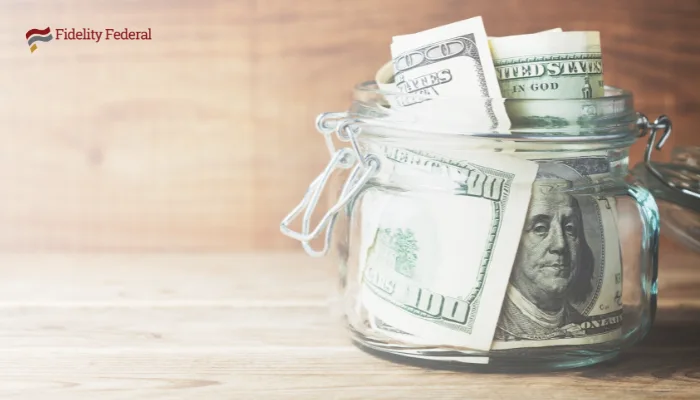Building an emergency fund for unexpected home repairs, large medical bills, a job loss, or other significant purchases is essential to ensuring financial stability and peace of mind. However, you may feel uncertain of how to get started or if you even have any extra money to set aside.
We spoke with Vice President of Retail and Marketing Jennifer Copley – keep reading to view her best tips.
Building an Emergency Fund To Ensure Financial Security
An emergency fund can help you pay for unplanned expenses and lessen your risk of depending on high-interest credit cards or loans. Knowing you have backup funds can be invaluable and help reduce stress and anxiety about your financial security.
Here’s what Jennifer shared about emergency funds:
How much money do you recommend people save for an emergency fund?
I always recommend paying yourself first. You need to set an amount that works with your budget. Make it a monthly or each-pay type of bill. When times are tough, people still pay the mortgage, but you must also pay yourself. The amount needs to fit the financial situation. When pay changes, the amount for your savings must also reflect that.
What type of account(s) should individuals use to keep their emergency funds?
I believe an emergency fund should always be a savings account at a different financial institution than your checking account, making it intentionally harder to access. This removes the convenience of transferring money out of the account. It also helps you become disciplined enough to only use it if it is truly an emergency.
Explore savings account options at Fidelity Federal >>
What are a few of your best tips for someone who’s just getting started?
When creating a monthly budget, include a line item for yourself. This should be an amount you are comfortable with and paid each time you get paid. It is also a good idea to create accounts for different financial goals that you set for yourself, including vacation, Christmas, or a home or car purchase. Your budget will also include these items, with a set amount for each account. You can always increase the amount when the opportunity arises!
How Can We Help You Start Your Emergency Fund?
Fidelity Federal offers savings accounts that are ideal for emergency funds. If you’re unsure which savings program is right for you, give us a call or stop in. We take the time to get to know you and discuss your goals and budget to determine which account will best meet your needs. Contact us today to get started!


